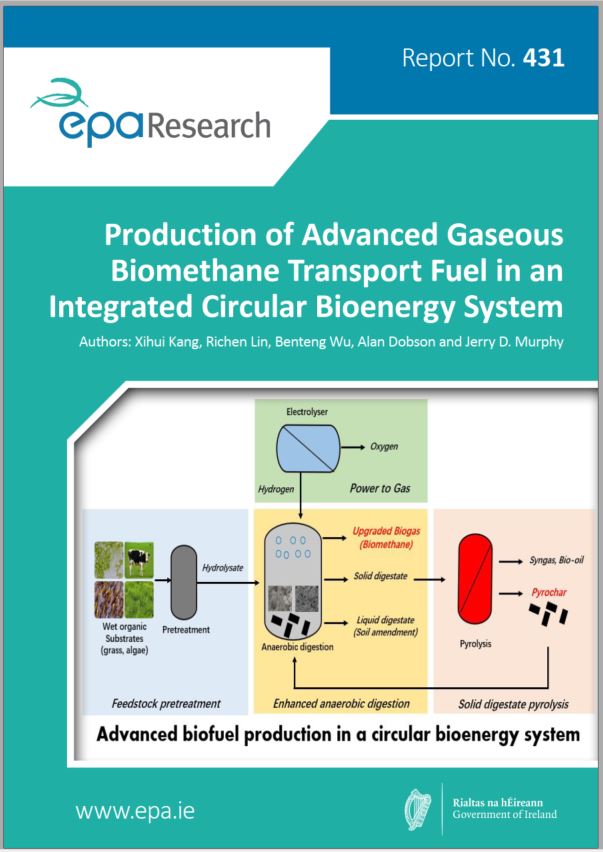
Authors: Xihui Kang, Richen Lin, Benteng Wu, Alan Dobson and Jerry D. Murphy, April 2023
Year: 2023
Transport is by far the largest source of energy-related CO2 emissions in Ireland. This highlights the need for a rapid transition from a linear fossil fuel-based economy to a bio-based economy that treats waste as a commodity, reduces GHG emissions, sequesters carbon and produces biofuels, biofertilisers, and bioproducts. The aim of the Advanced Gaseous Biomethane project was to develop an integrated system that produces biomethane using biomass to fuel the transport sector cleanly and support Ireland in achieving key emissions targets.
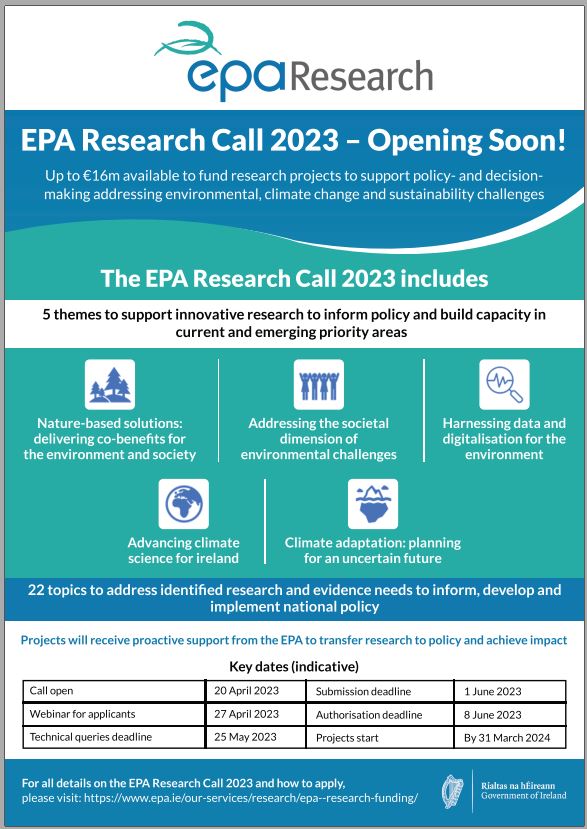
Year: 2023
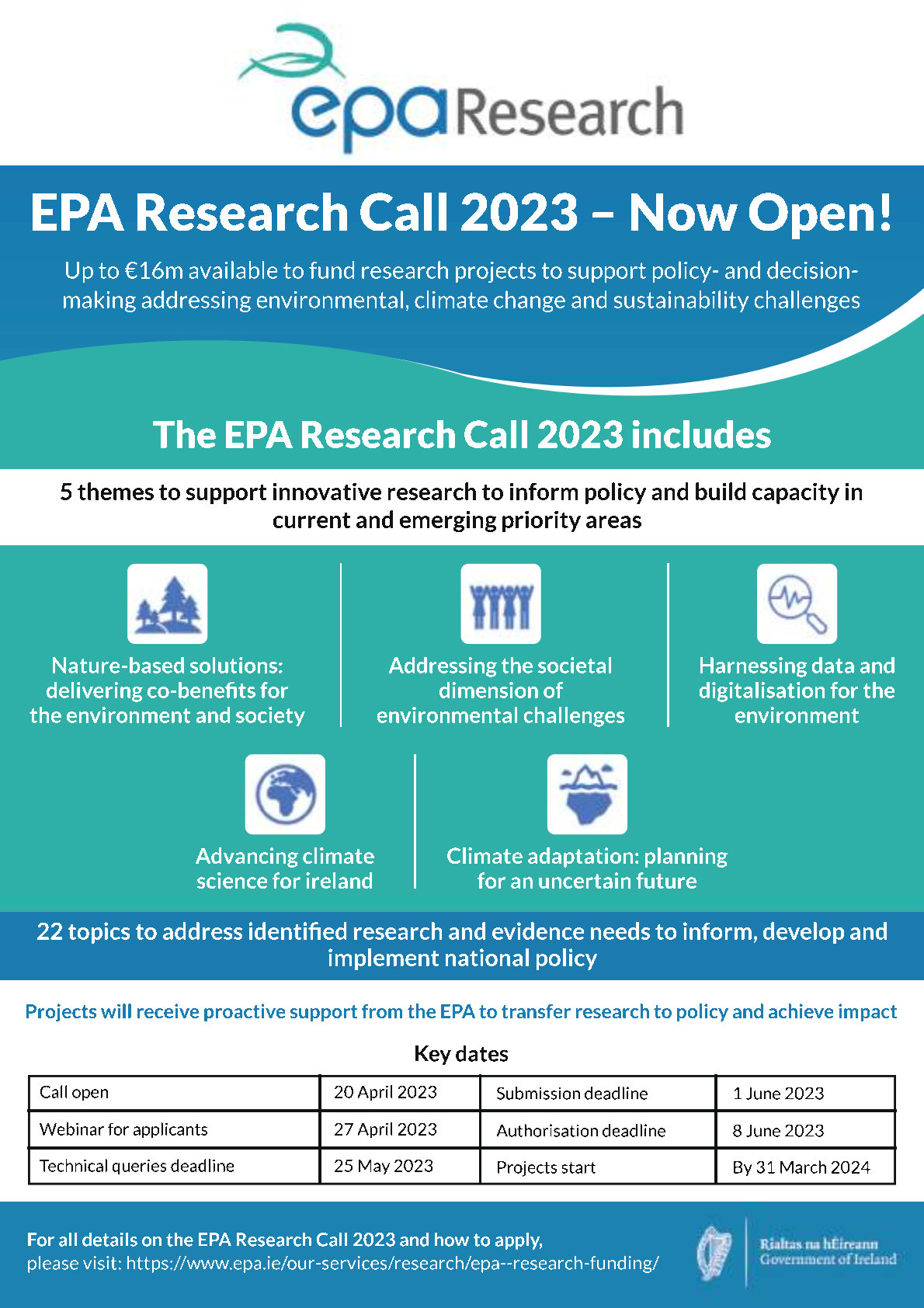
Year: 2023
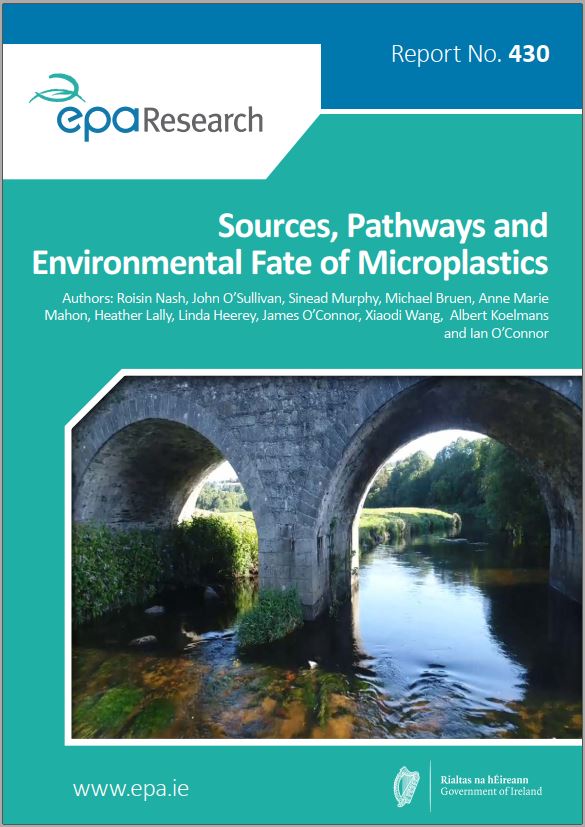
Authors: Roisin Nash, John O’Sullivan, Sinead Murphy, Michael Bruen, Anne Marie Mahon, Heather Lally, Linda Heerey, James O’Connor, Xiaodi Wang, Albert Koelmans and Ian O’Connor, March 2023
Year: 2023
As plastic production continues to increase, we are seeing significant quantities of microplastics (MPs), a contaminant of emerging concern, being recorded worldwide. This research project has identified key challenges and recommendations that target MP pollution, highlighting immediate measures that could manage MP debris at known sources. This will inform the development and implementation of policies such as the Water Framework Directive.
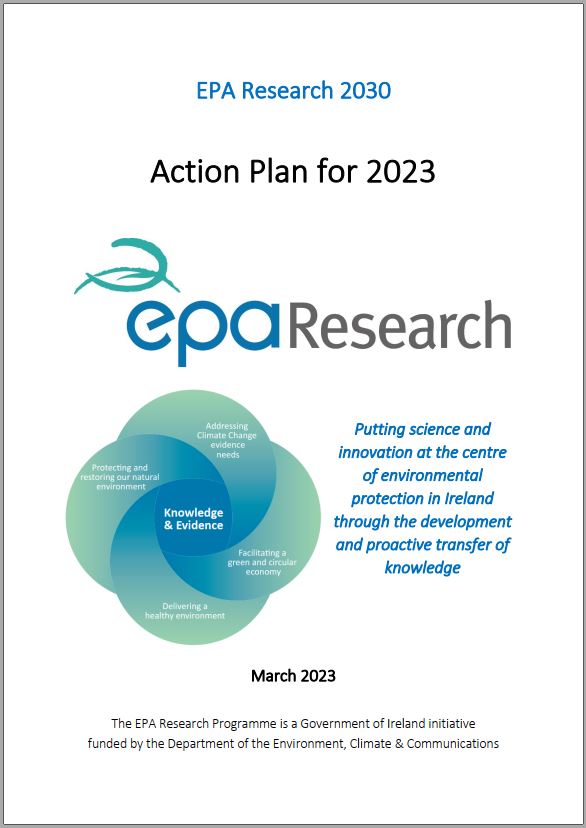
Authors: EPA, March 2023
Year: 2023
This Action Plan 2023 provides a guide for the planned activities of the EPA Research Programme in 2023.
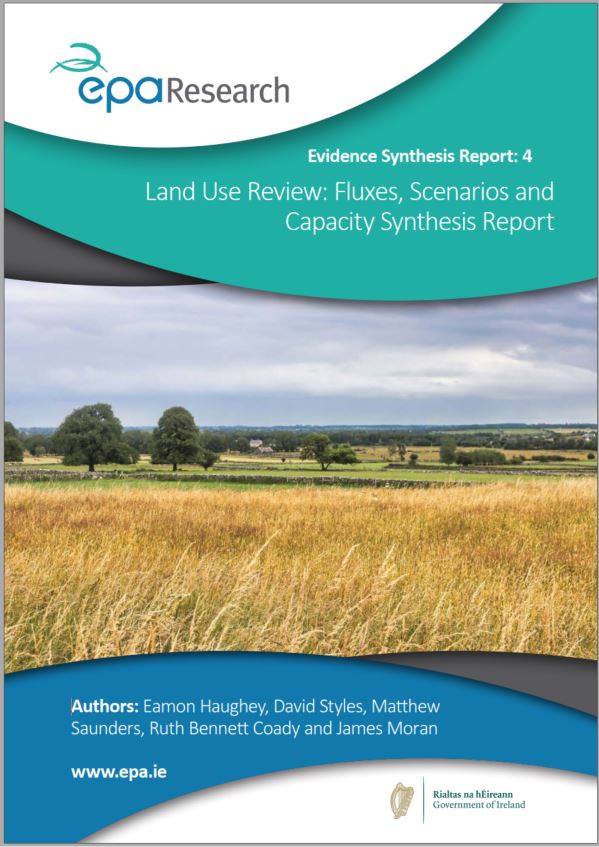
Authors: Eamon Haughey, David Styles, Matthew Saunders, Ruth Bennett Coady and James Moran, March 2023
Year: 2023
Land use in Ireland is dominated by grasslands, with significant areas of forestry and wetland, which are not distributed evenly across the country. Changes to Irelands climate have already been observed and are projected to increase over the coming decades, impacting the land system. AFOLU in Ireland is a substantial GHG source and achieving net-zero GHG emissions targets for the sector by 2050 will be very challenging. Measures considered in this report include afforestation, peatland restoration and optimised livestock production. Land based climate mitigation measures may result in trade-offs for biodiversity and water quality, the avoidance of which require an integrated approach to land management.
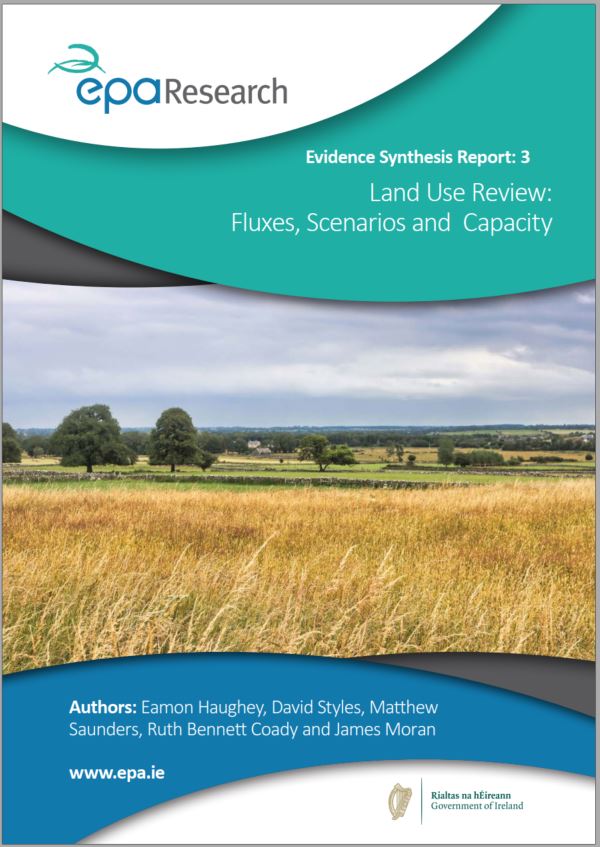
Authors: Eamon Haughey, David Styles, Matthew Saunders, Ruth Bennett Coady and James Moran, March 2023
Year: 2023
Land use in Ireland is dominated by grasslands, with significant areas of forestry and wetland, which are not distributed evenly across the country. Changes to Irelands climate have already been observed and are projected to increase over the coming decades, impacting the land system. AFOLU in Ireland is a substantial GHG source and achieving net-zero GHG emissions targets for the sector by 2050 will be very challenging. Measures considered in this report include afforestation, peatland restoration and optimised livestock production. Land based climate mitigation measures may result in trade-offs for biodiversity and water quality, the avoidance of which require an integrated approach to land management.
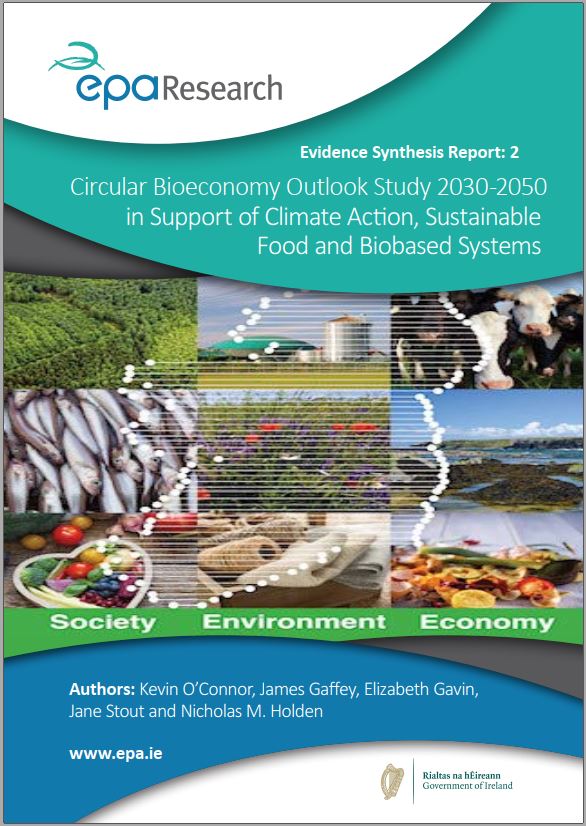
Authors: Kevin O’Connor, James Gaffey, Elizabeth Gavin, Jane Stout and Nicholas M. Holden, February 2023
Year: 2023
This report provides an outlook for Ireland’s circular bioeconomy for the period 2030–2050, highlighting the potential to create economic, environmental and social opportunities for new biobased innovations.
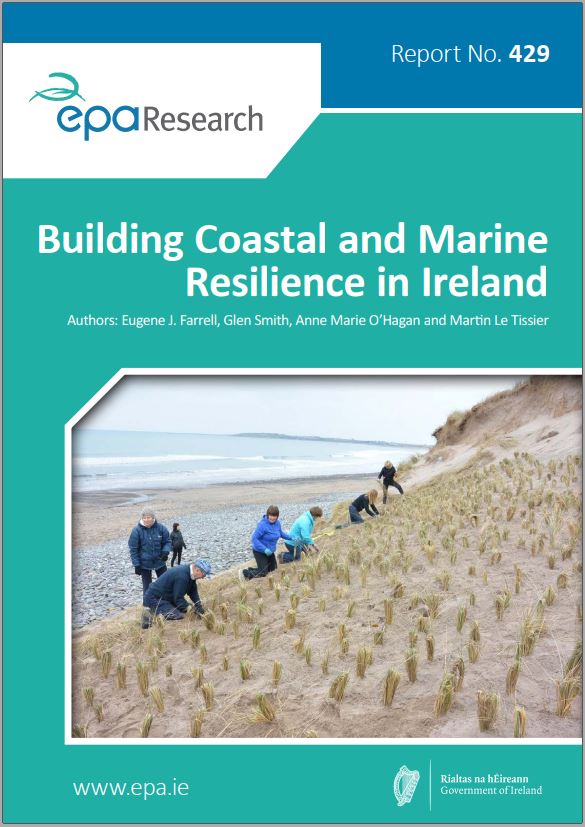
Authors: Eugene J. Farrell, Glen Smith, Anne Marie O’Hagan and Martin Le Tissier, February 2023
Year: 2023
The identification and increased awareness of climate change risks to Ireland’s coastal communities highlights the importance of building national resilience across socio-ecological and economic systems. This research investigated barriers to the environmental and socio-economic resilience of two coastal communities: Maharees, County Kerry, and Youghal, County Cork.
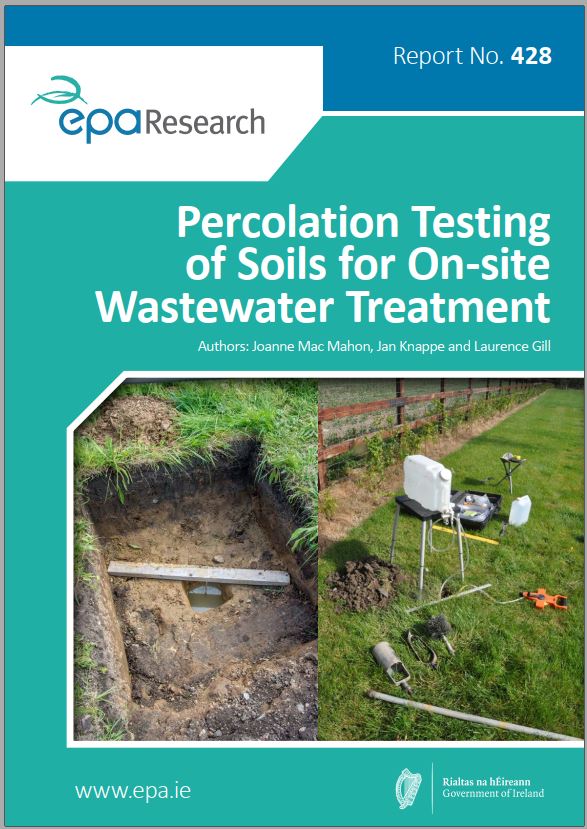
Authors: Joanne Mac Mahon, Jan Knappe and Laurence Gill, January 2023
Year: 2023
Estimation of soil permeability is a critical aspect of on-site wastewater treatment system design. The findings of this research identify a need to revise the currently available options in the Irish Code of Practice for estimating soil permeability for on-site wastewater system design. In this research, a correlation was developed between field saturated hydraulic conductivity (Kfs) and percolation time (T-values) across a full range of Irish soil texture data.
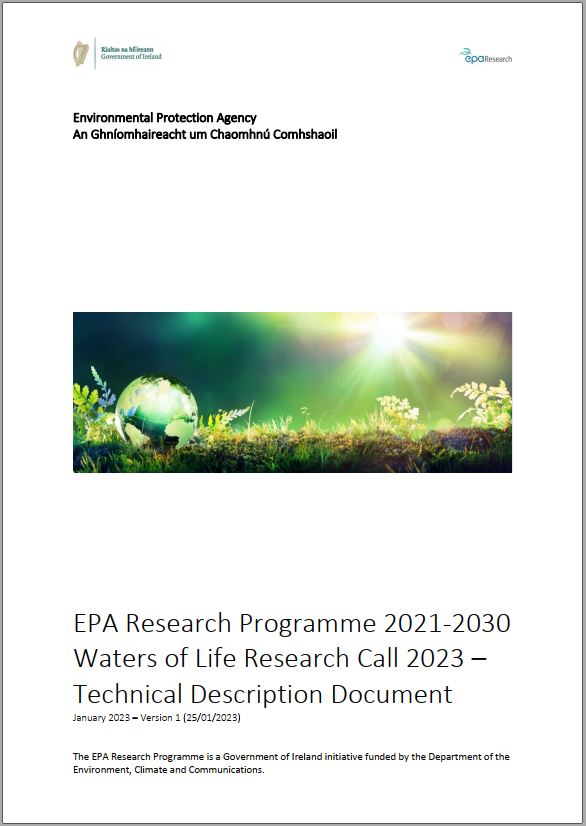
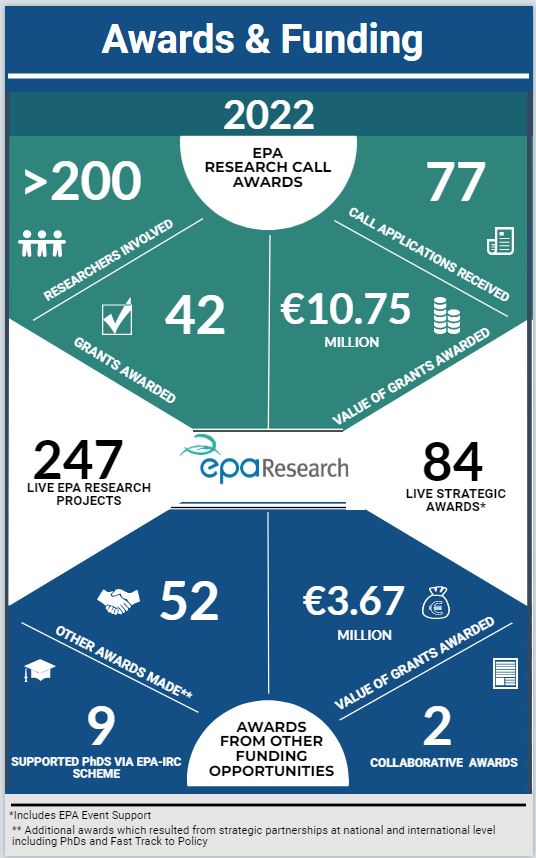
Year: 2023
Year: 2023
Please download and fully complete this form. The form must be sent as an attachment with all submissions to the EPA Researchers Awards 2022 for the submission to be valid.

Year: 2023
This report is an update of the previous stand-alone guidance document on SEA Statements and monitoring, prepared as part of the EPA-funded project Second Review of SEA Effectiveness in Ireland (González et al., 2020). It is specific to the Irish context but has wider international applicability. The monitoring recommendations include guidance on indicators to facilitate a more consistent and coherent approach at this SEA stage. The updates relate to clarifying some SEA monitoring requirements and to acknowledge the published revised national SEA Guidelines and the Development Plan Guidelines for Planning authorities, both published by the DHLGH in 2022.
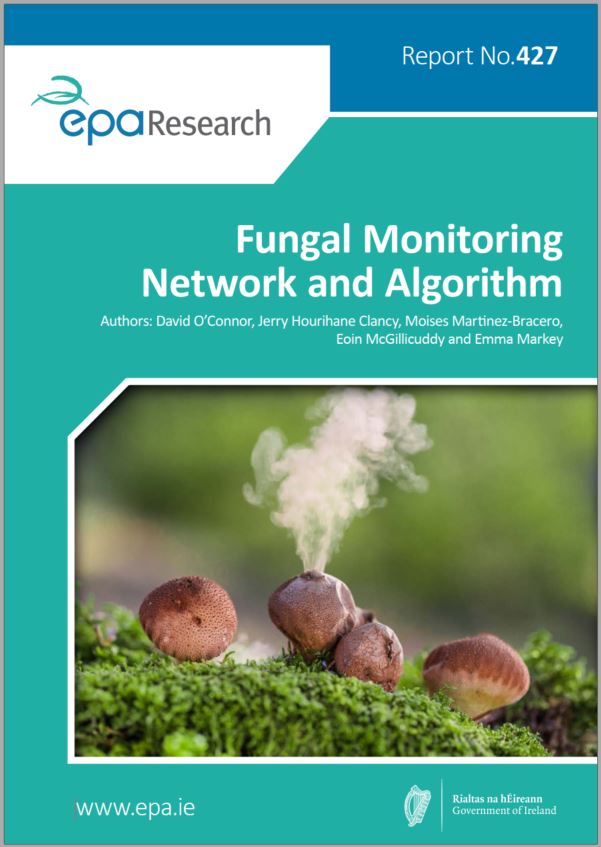
Authors: David O’Connor, Jerry Hourihane Clancy, Moisés Martínez-Bracero, Eoin McGillicuddy and Emma Markey, December 2022
Year: 2022
Bioaerosols are biological particles in the air such as pollen, fungal spores, bacteria and viruses. While most are harmless, some can trigger adverse effects such as hay fever or respiratory diseases. The impacts of bioaerosols on the health of the Irish population and agriculture and the linkages to climate remain underexplored. This project seeks to address this problem by undertaking the required monitoring and by developing a forecast model.
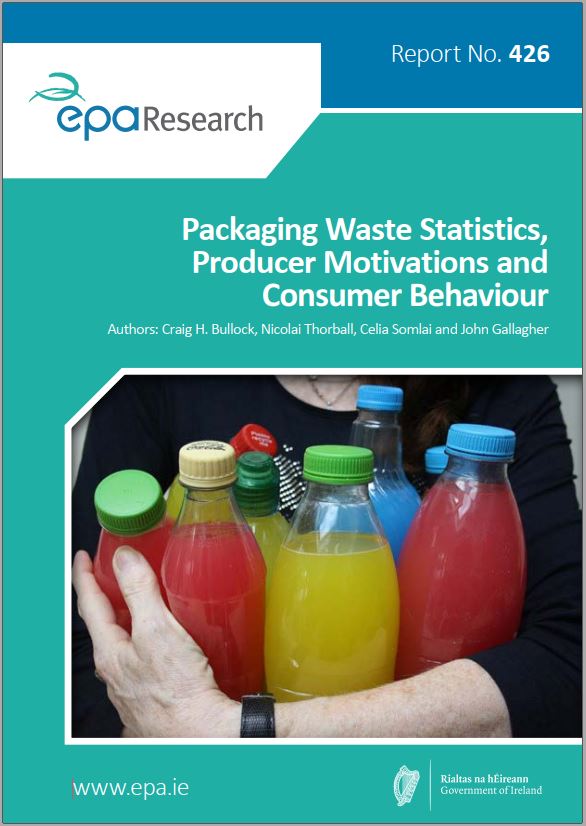
Authors: Craig H. Bullock, Nicolai Thorball, Celia Somlai and John Gallagher, December 2022
Year: 2022
The production of plastic packaging for food and other products has increased substantially over the past 50 years. The ReWrapped project investigated why Ireland’s production of plastic packaging waste appears to be higher than that of other EU Member States. The project also undertook a survey of producers to help understand what drives their use of different types of plastic and the extent to which sustainability considerations influence their decision-making.
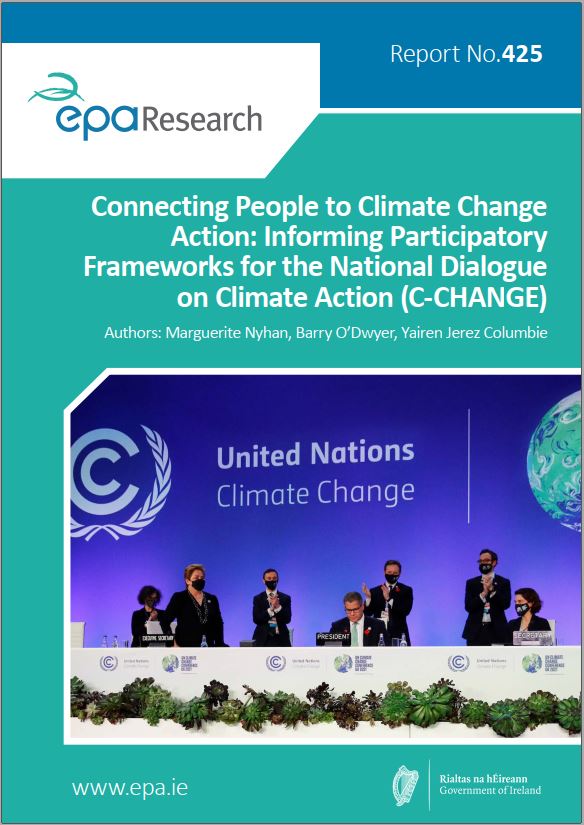
Authors: Marguerite Nyhan, Barry O'Dwyer and Yairen Jerez Columbié, October 2022
Year: 2022
Ireland has committed to achieving a net-zero and climate-neutral economy by 2050. The C-CHANGE project is focused on developing solutions and provides guidance on facilitating stakeholders’ and citizens’ participation in environmental and climate dialogues and thus in climate action nationally and internationally. The research outputs provide clear and flexible guidelines that can be adapted to different contexts, sectors and audiences by practitioners, researchers and authorities.
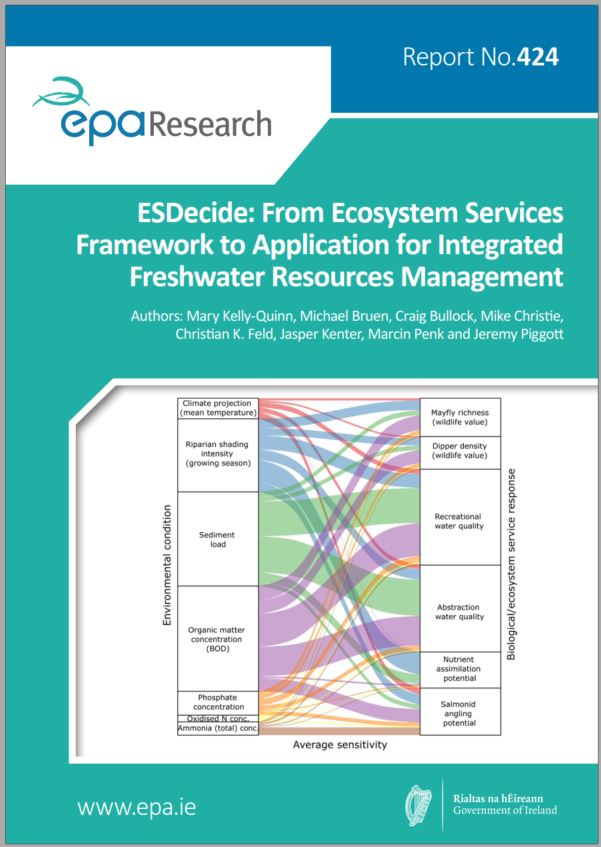
Authors: Mary Kelly-Quinn, Michael Bruen, Craig Bullock, Mike Christie, Christian K. Feld, Jasper Kenter, Marcin Penk and Jeremy Piggott, September 2022
Year: 2022
The ESDecide project set out to build on the outputs of the previous EPA-funded ESManage project by developing the tools and guidance needed to advance the incorporation of ecosystem services and the concept of “nature’s contribution to people” (NCP) into decision-making for the protection and management of freshwater resources and other related policy goals. The project developed the interactive decision support tool ProgRES, which helps river resource managers estimate the probability of changes in biological responses and the associated ecosystem services/NCP changes in environmental conditions.